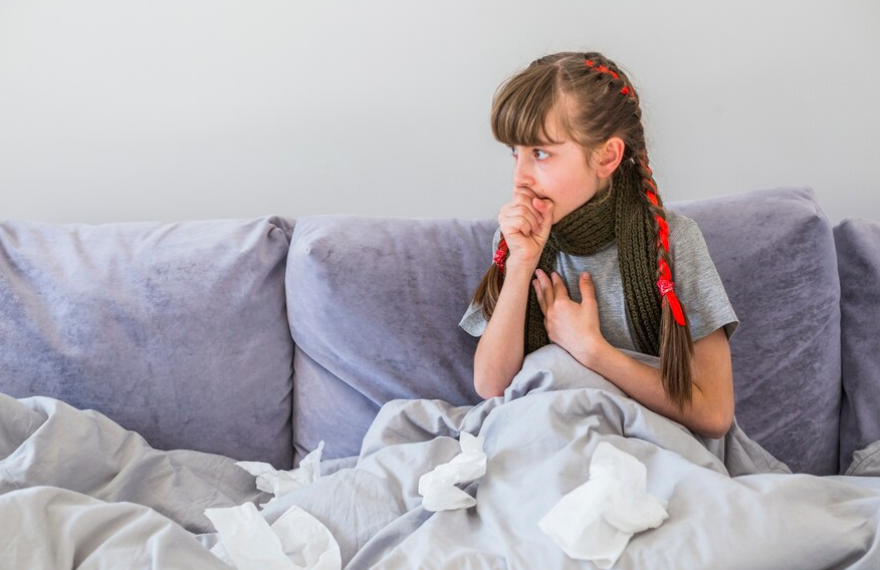Wheezing in children, characterized by a high-pitched whistling sound during breathing, is a common concern for many parents. This sound typically indicates that the airways are constricted or blocked, often due to inflammation or mucus build-up in the lung tubes. While occasional wheezing may not be a cause for alarm, recurrent wheezing requires careful evaluation and management to ensure the child’s health and well-being.
Causes of Wheezing
Understanding the underlying causes of wheezing is crucial for effective treatment and prevention. Here are some common causes:
- Viral Infections: Viral respiratory infections, such as the common cold or respiratory syncytial virus (RSV), can cause the airways to swell and produce mucus, leading to wheezing.
- Croup: Croup is a condition that leads to a distinctive hoarse cough and wheezing due to swelling around the vocal cords and windpipe.
- Allergies and Illnesses: Allergies to dust, pollen, or certain foods, as well as illnesses like asthma and bronchiolitis, can cause wheezing. Exposure to smoke and other environmental irritants can also trigger wheezing.
- Foreign Bodies: Young children may accidentally inhale small objects or food particles, causing airway obstruction and wheezing.
- Immune Defects: Conditions like cystic fibrosis and primary ciliary dyskinesia can impair lung function and lead to recurrent wheezing.
- Neurological Disorders: Neuromuscular diseases can cause difficulties in feeding and swallowing, leading to aspiration and subsequent wheezing.
- Cardiac Disorders: Some heart conditions, such as atrial septal defect (ASD), ventricular septal defect (VSD), and patent ductus arteriosus (PDA), can cause symptoms including wheezing.
- Gastroesophageal Reflux: Reflux of stomach contents into the esophagus can cause wheezing, often accompanied by vomiting and poor weight gain.
Symptoms of Wheezing
Recognizing the symptoms of wheezing can help in seeking timely medical intervention. Common symptoms include:
- Persistent coughing
- Heavy or labored breathing
- Shortness of breath
- Whistling or musical sounds during exhalation
- Coughing that leads to vomiting
Treatment for Wheezing
Treatment for wheezing varies depending on the underlying cause and severity of the symptoms. Common treatments include:
- Anti-Inflammatory Medicines: These medications help reduce inflammation in the airways, making it easier for the child to breathe.
- Inhalers: Doctors may prescribe inhalers to open up the airways and reduce mucus. These inhalers can include bronchodilators, which relax the muscles around the airways, and corticosteroids, which reduce inflammation.
- Nebulization: Nebulizers convert liquid medicine into a mist that can be inhaled directly into the lungs. This method is often used during acute wheezing episodes to provide quick relief.
- Long-Term Management: Depending on the cause of the wheezing, long-term management may involve regular use of inhalers, allergy management strategies, or specific treatments for underlying conditions like asthma or reflux.
Prevention of Wheezing
Preventing recurrent wheezing involves identifying and managing the underlying causes. Here are some preventive measures:
- Environmental Control: Reduce exposure to allergens and irritants such as dust, pollen, smoke, and pet dander. Using air purifiers and maintaining a clean home environment can help.
- Seasonal Awareness: Be aware of seasonal changes that may trigger wheezing in your child. Preemptive use of medications and allergen control measures can be beneficial.
- Proper Evaluation: Regular medical check-ups are essential to identify any underlying conditions that may cause wheezing. Early diagnosis and treatment can prevent recurrent episodes.
- Healthy Lifestyle: Ensure your child has a balanced diet, regular exercise, and sufficient rest to boost their overall health and immune system.
- Breastfeeding: For infants, breastfeeding can help reduce the risk of wheezing and respiratory infections by providing essential nutrients and antibodies.
Conclusion
Recurrent wheezing in children can be distressing for both the child and the parents. However, with proper evaluation, timely treatment, and preventive measures, most children can overcome this condition and enjoy a healthy childhood. Always consult with a pediatrician if your child exhibits signs of wheezing to determine the appropriate course of action. At Savera Child Clinic, we offer specialized care for children with recurrent wheezing, ensuring that every child receives the best possible treatment and support.

